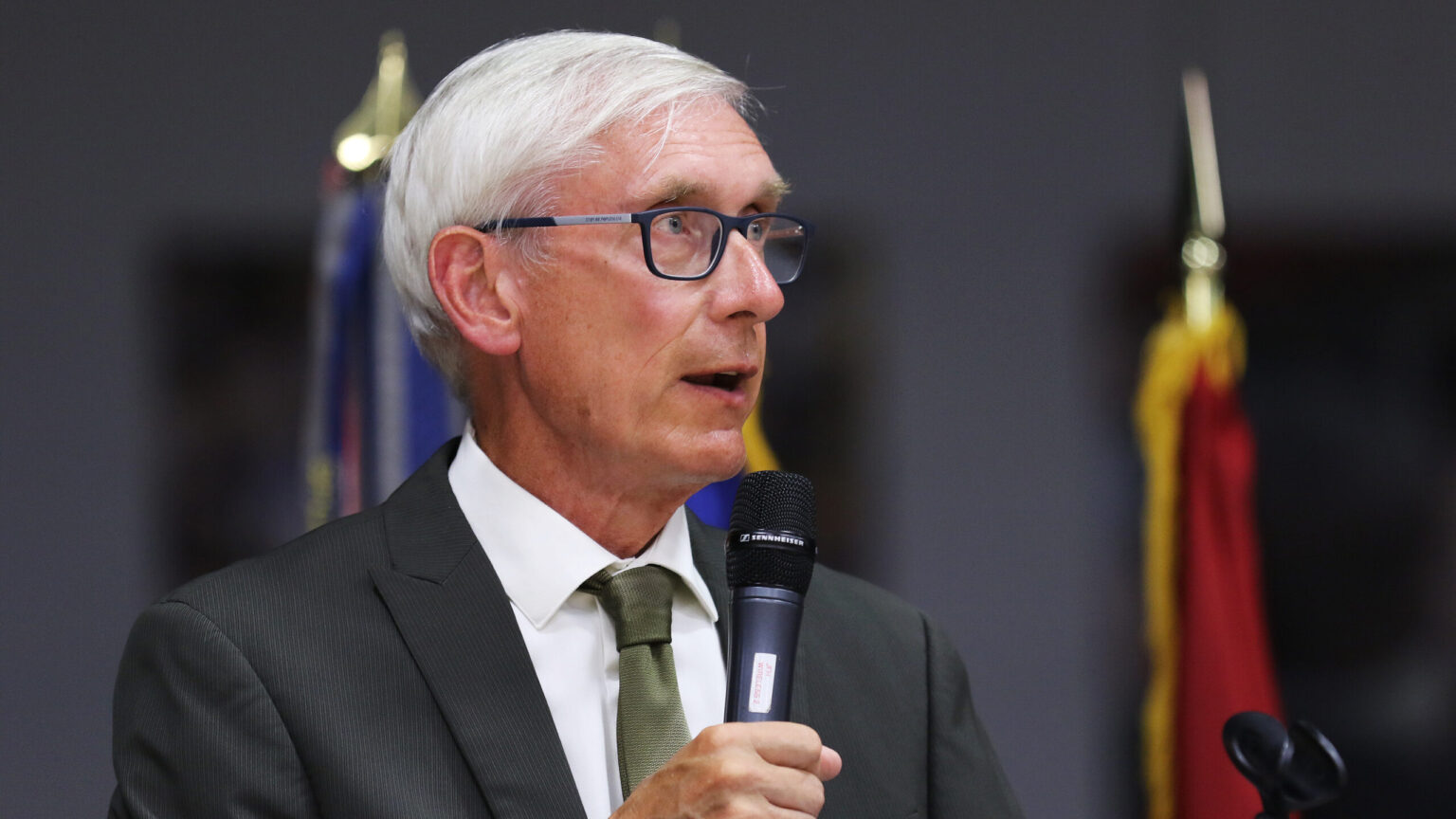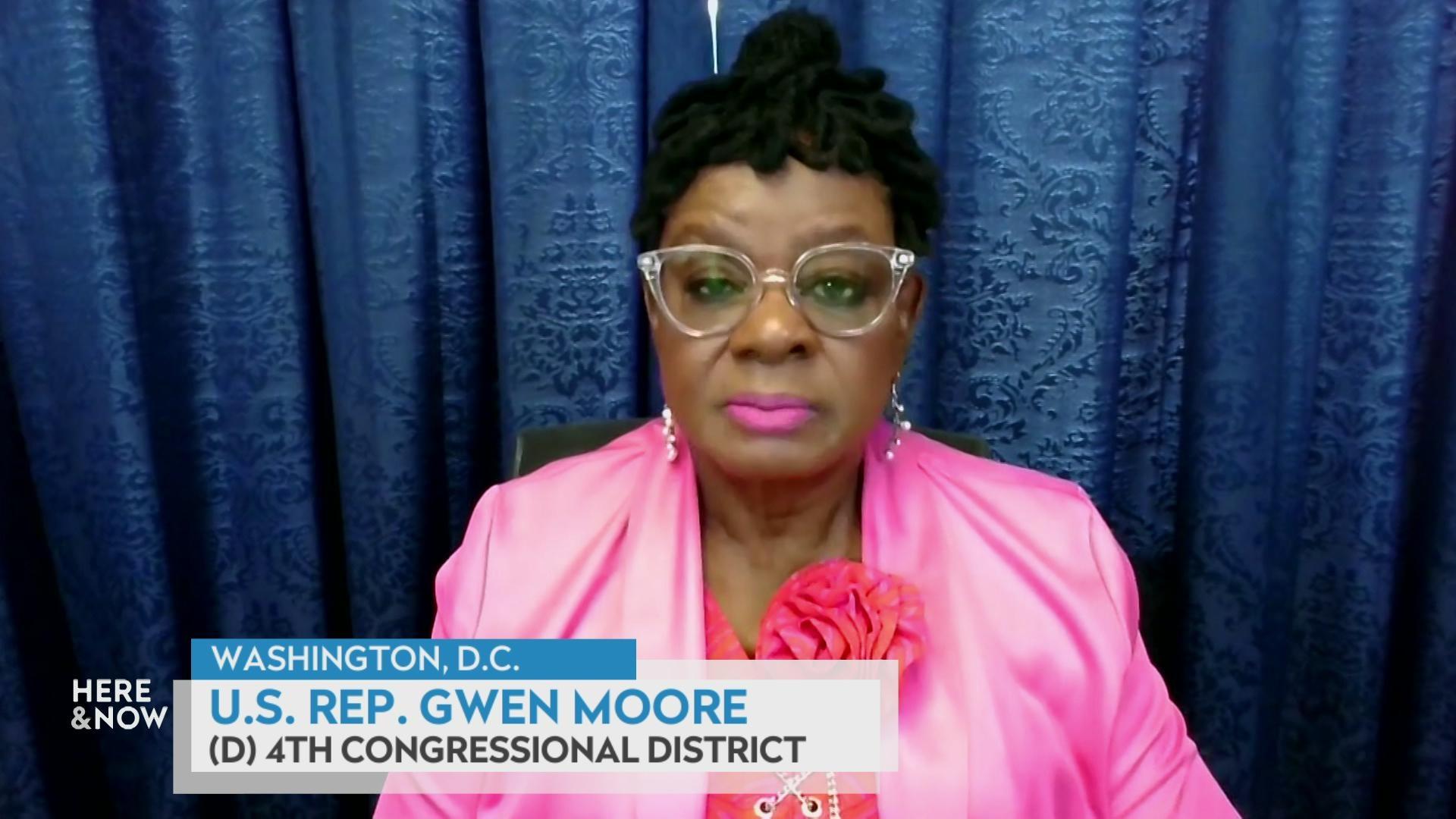Evers: 'Unacceptable' Wisconsin Is Getting Fewer Vaccines
December 18, 2020

Gov. Tony Evers addresses the Wisconsin Army National Guard’s 1st Battalion, 128th Infantry Regiment, during a sendoff ceremony July 14 at the University of Wisconsin-Stout in Menomonie, Wis. The approximately 400 Soldiers will deploy as a security element for coalition forces in the Central Command theater of operations. (Courtesy: Staff Sgt. Katie Eggers / Wisconsin National Guard)
Wisconsin is set to receive fewer doses than expected in the next round of Pfizer vaccine distributions, Gov. Tony Evers announced Friday.
“This is unacceptable,” he said. “Wisconsin citizens deserve the vaccine the federal government promised.”
The state received 49,725 doses this week, and is scheduled to receive 35,100 doses of the Pfizer vaccine in the next round of allocations—which the governor said is much less than promised.
He also called on the federal government to provide more transparency on how the vaccines are being allocated to the states. In a statement, the governor reiterated his call for the federal government to prioritize Wisconsin for vaccine distribution, due to the administration’s inability to implement statewide mitigation efforts.
This comes as the Wisconsin National Guard announced a small team of 20 troops will assist in distributing the vaccine in the state.
According to a release from the Department of Military affairs, the guard members will be providing support for the vaccine distribution, but are not providing security or transport of the vaccine.
Guard members have assisted in staffing testing sites since the beginning of the pandemic, which has included more than 1,600 guard members according to the department.
This comes also as the governor announced an outpatient drug infusion clinic will open at the state field hospital in West Allis next week.
“This is another tool in our toolbox of how to prevent severe disease, and it’s a unique kind of treatment,” said state epidemiologist Dr. Ryan Westergaard in a Dec. 18 interview with Here & Now.
The clinic will provide for the infusion of Bamlanivimab, which helps prevent the body’s immune system from being overwhelmed by the virus, causing serious illness. The clinic can serve up to 84 patients per week, and is for those experiencing mild to moderate COVID-19 symptoms and are at high risk of serious illness.
“If we can deliver that to people who are at high risk of requiring hospitalization, which is generally older folks, we can avoid some strain on our health care system and potentially save lives,” Westergaard added.
This comes as the state’s daily COVID-19 numbers continue to drop. The state recorded 3,235 new COVID-19 cases Friday. Westergaard says this is encouraging, but still not where the state needs to be.
“We should take some comfort in that, but we should also acknowledge that the flat area of the curve is far too high,” he said. “We clearly have more work to do, but I think we can feel good that we’ve stopped that really dangerous increase that we were seeing a few weeks ago.”
 Passport
Passport











Follow Us